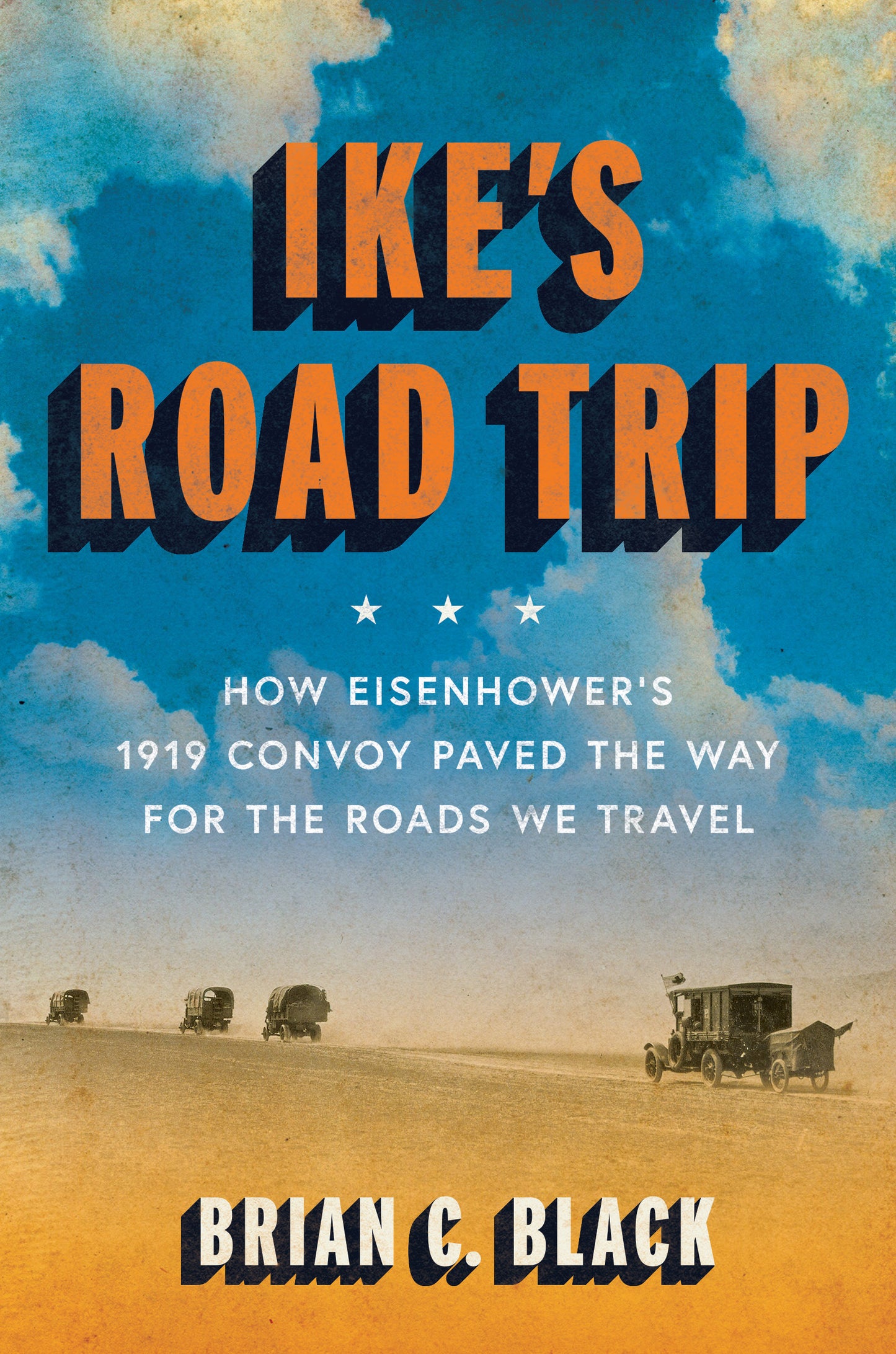
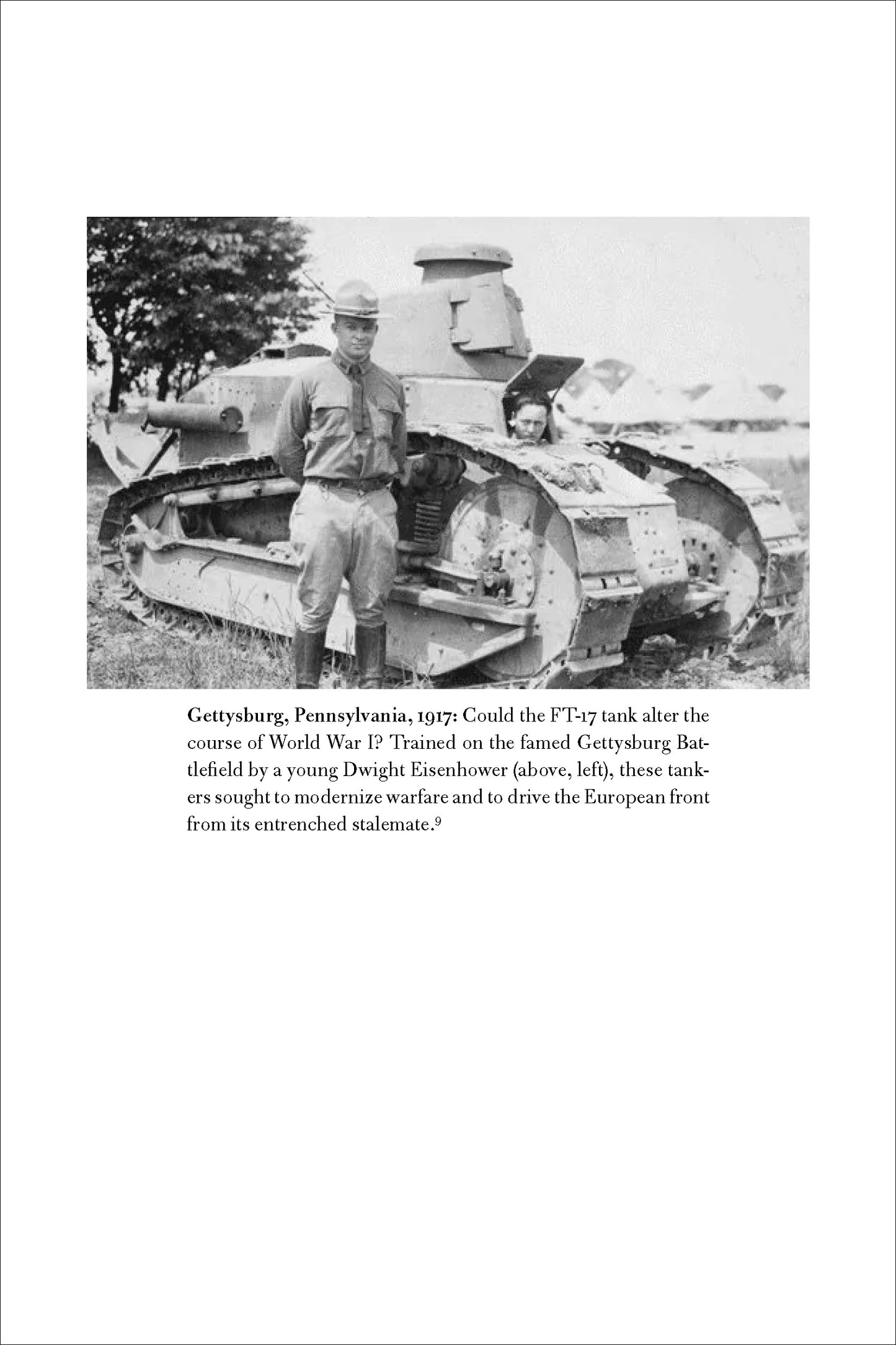
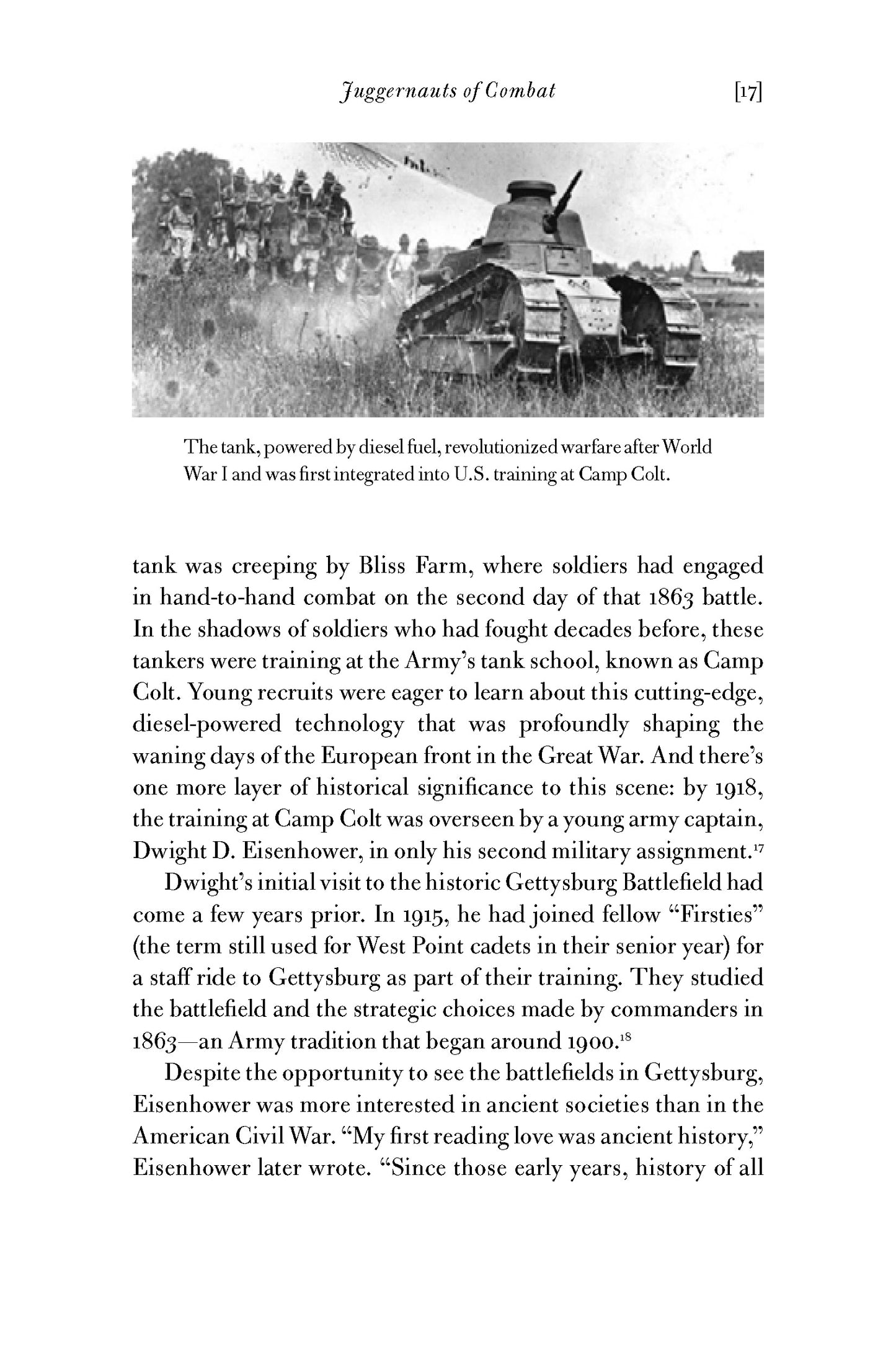
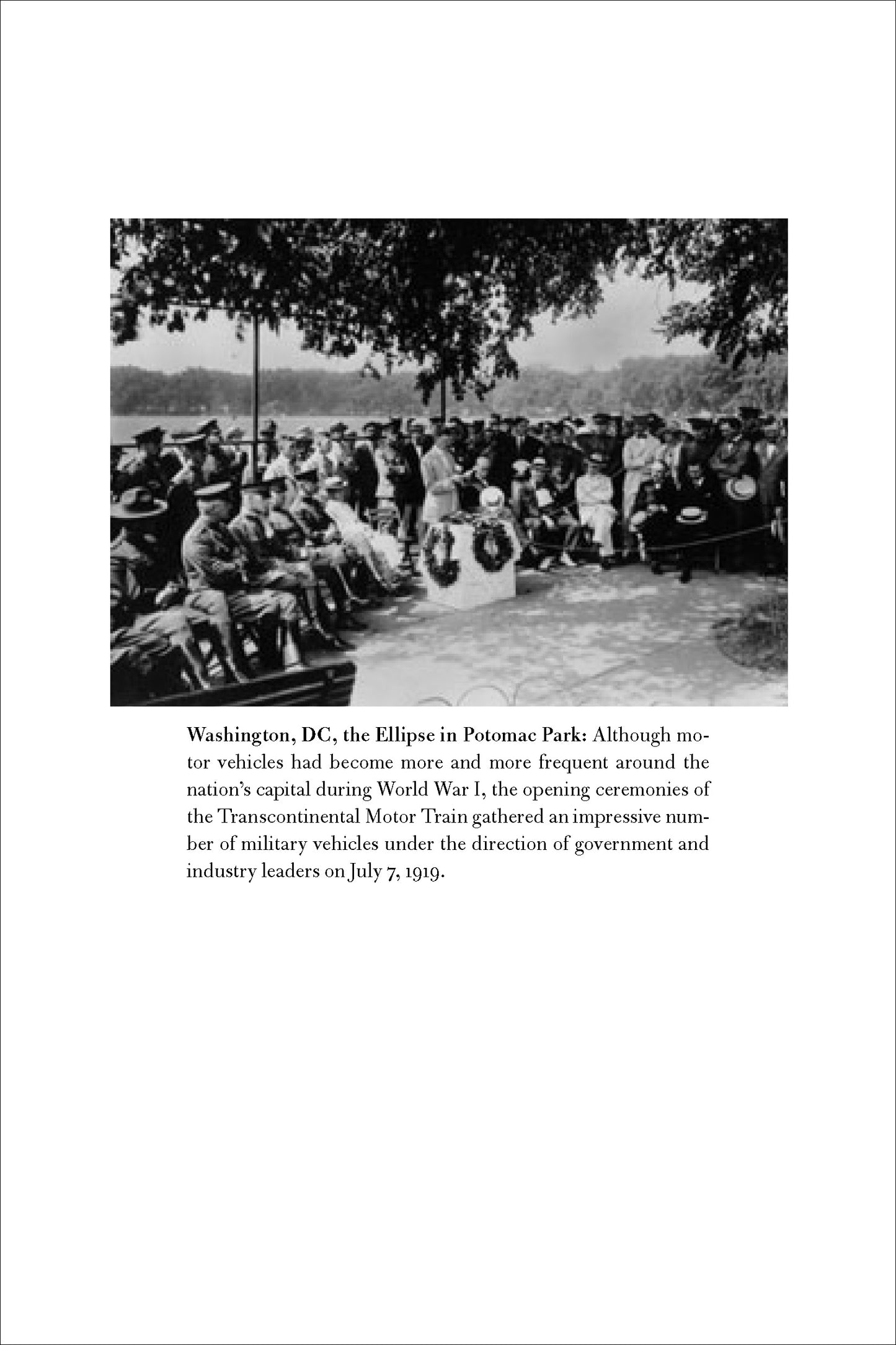
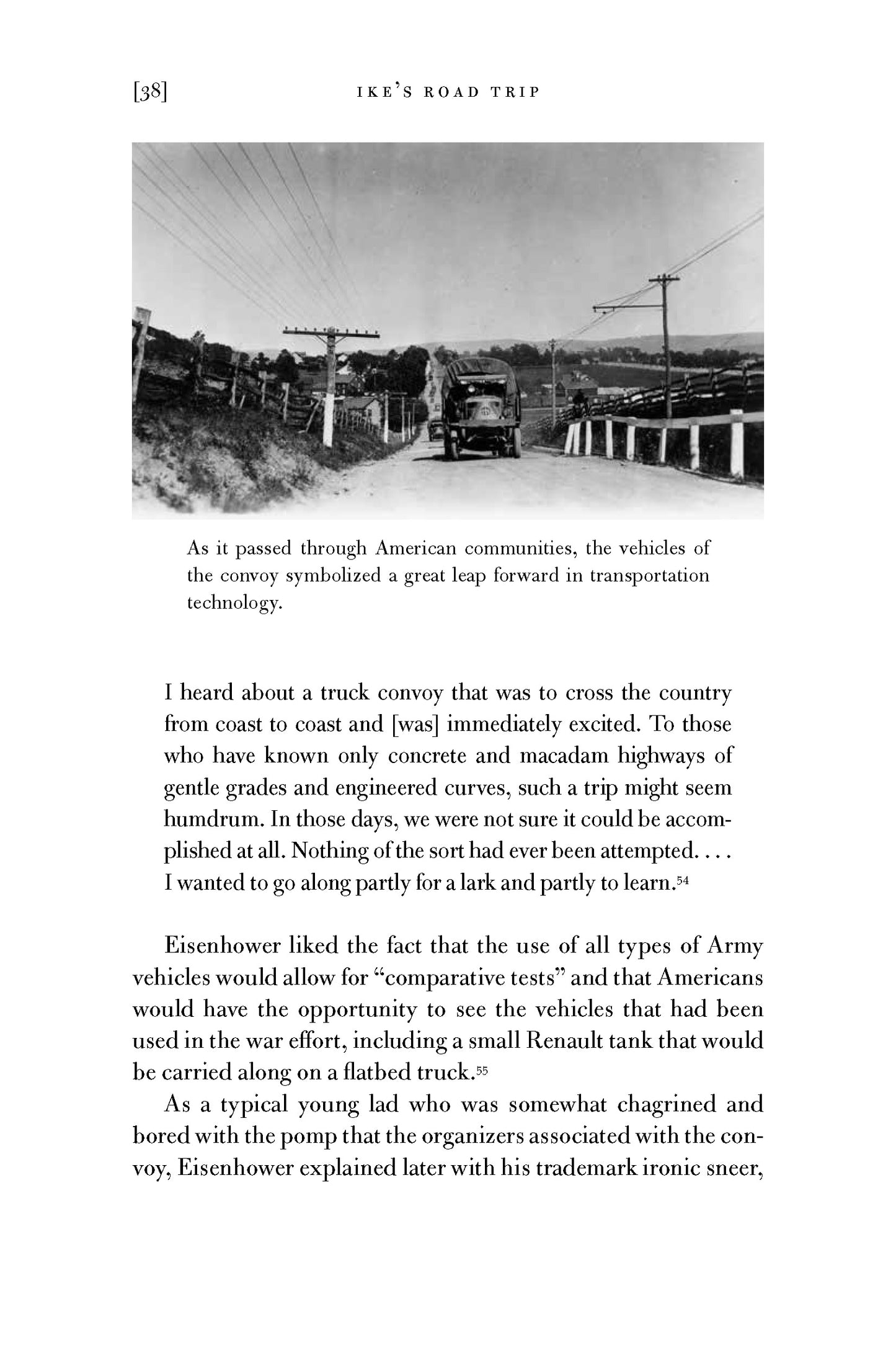
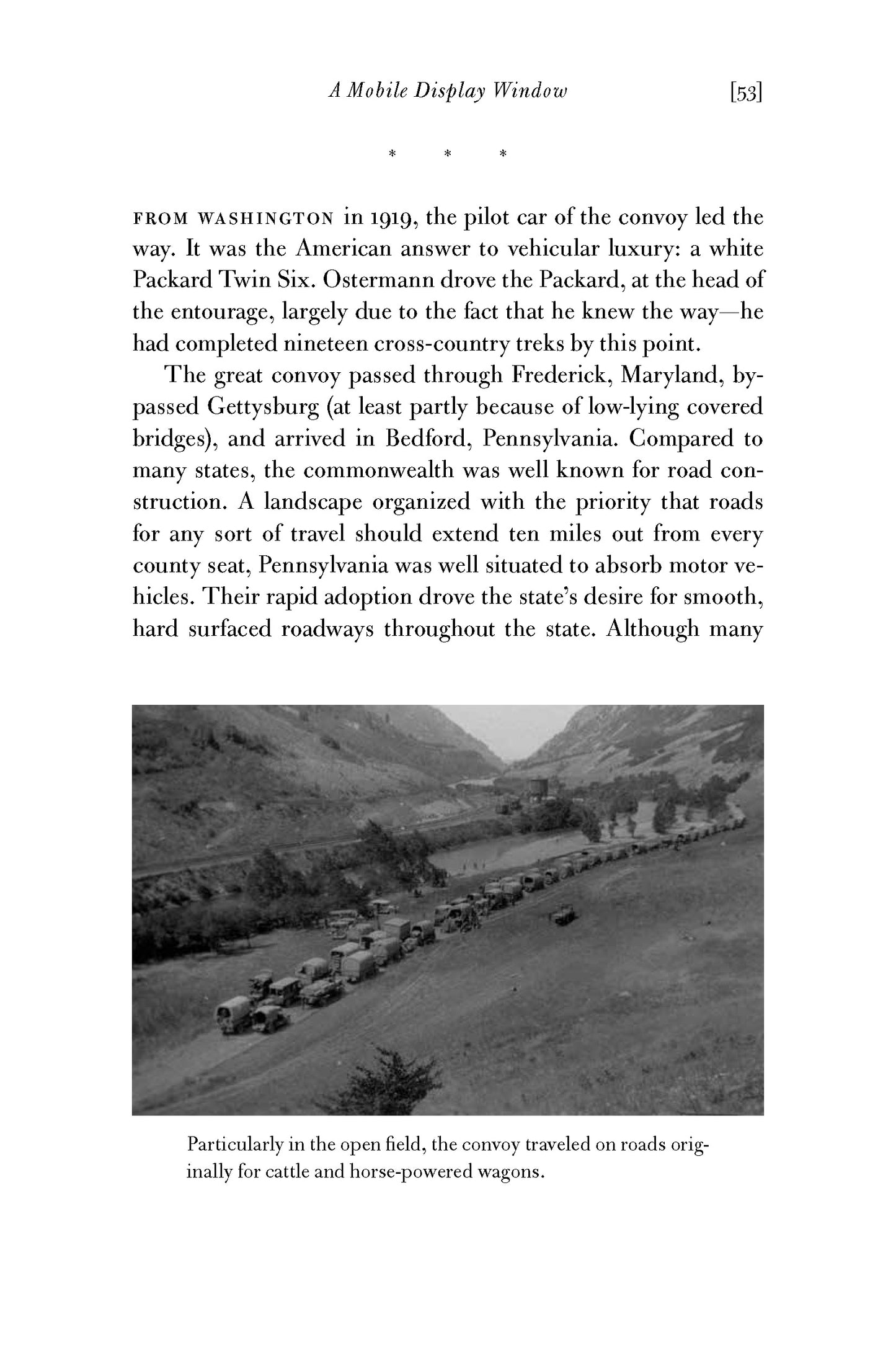
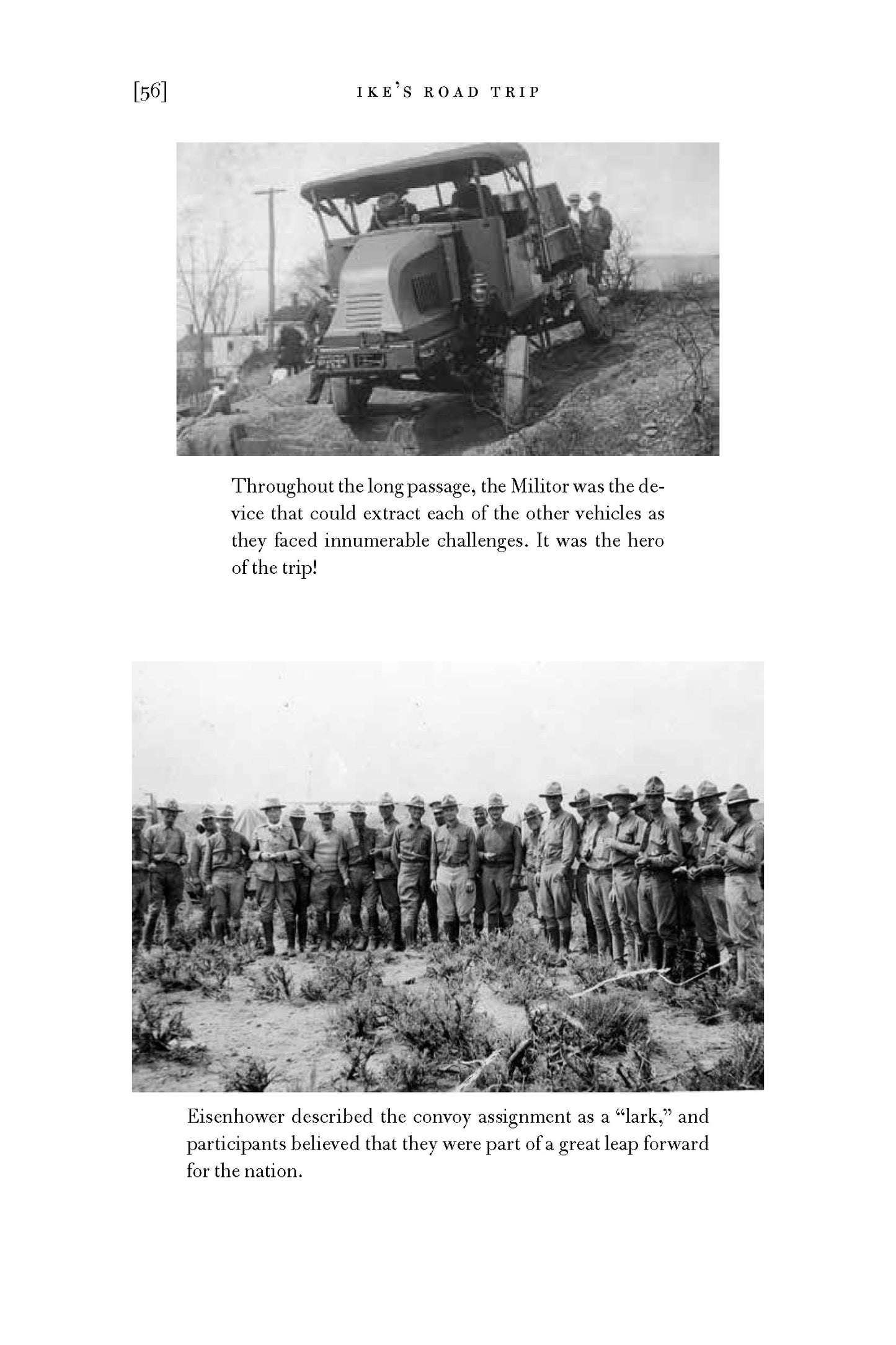
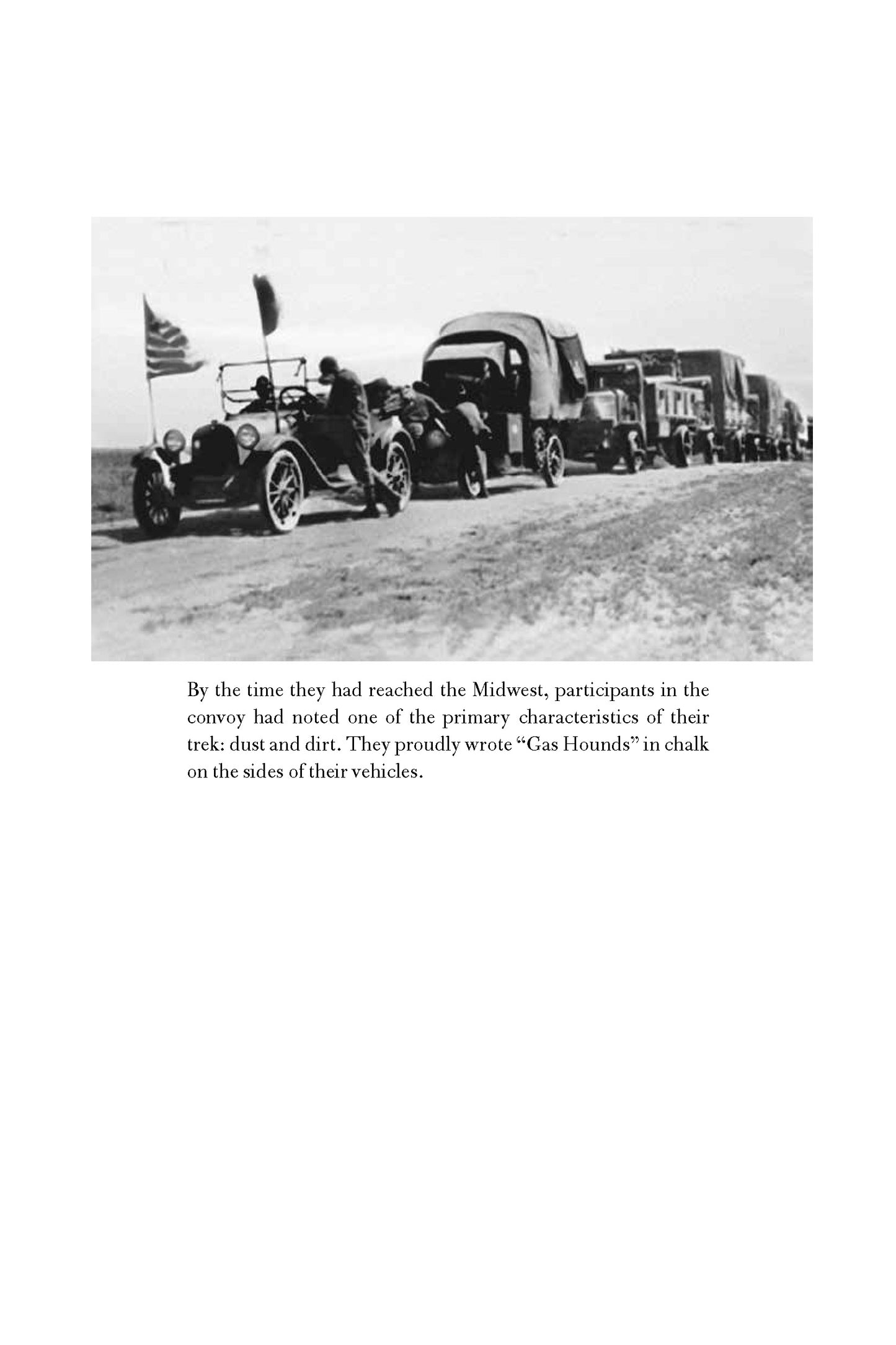
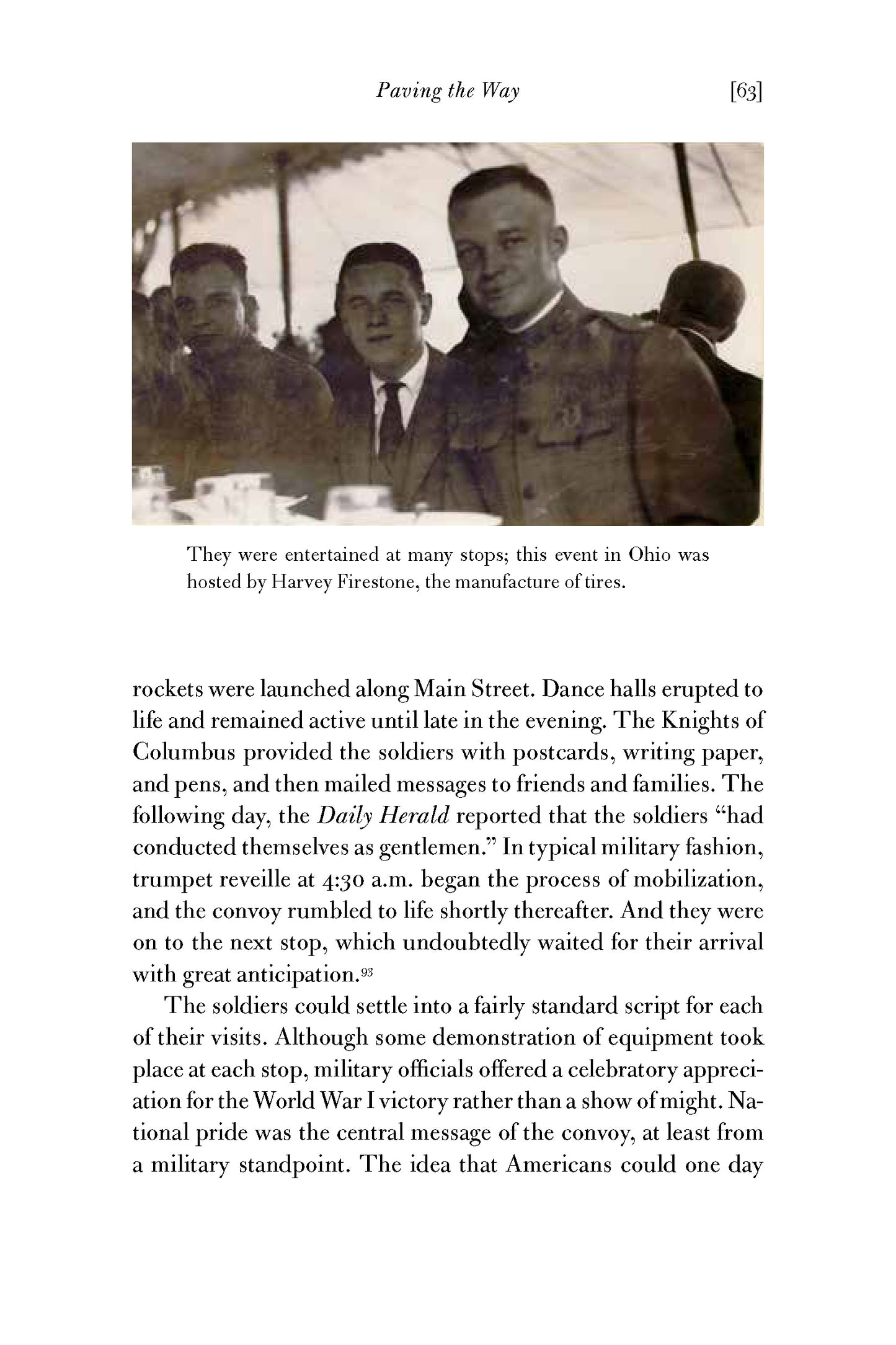
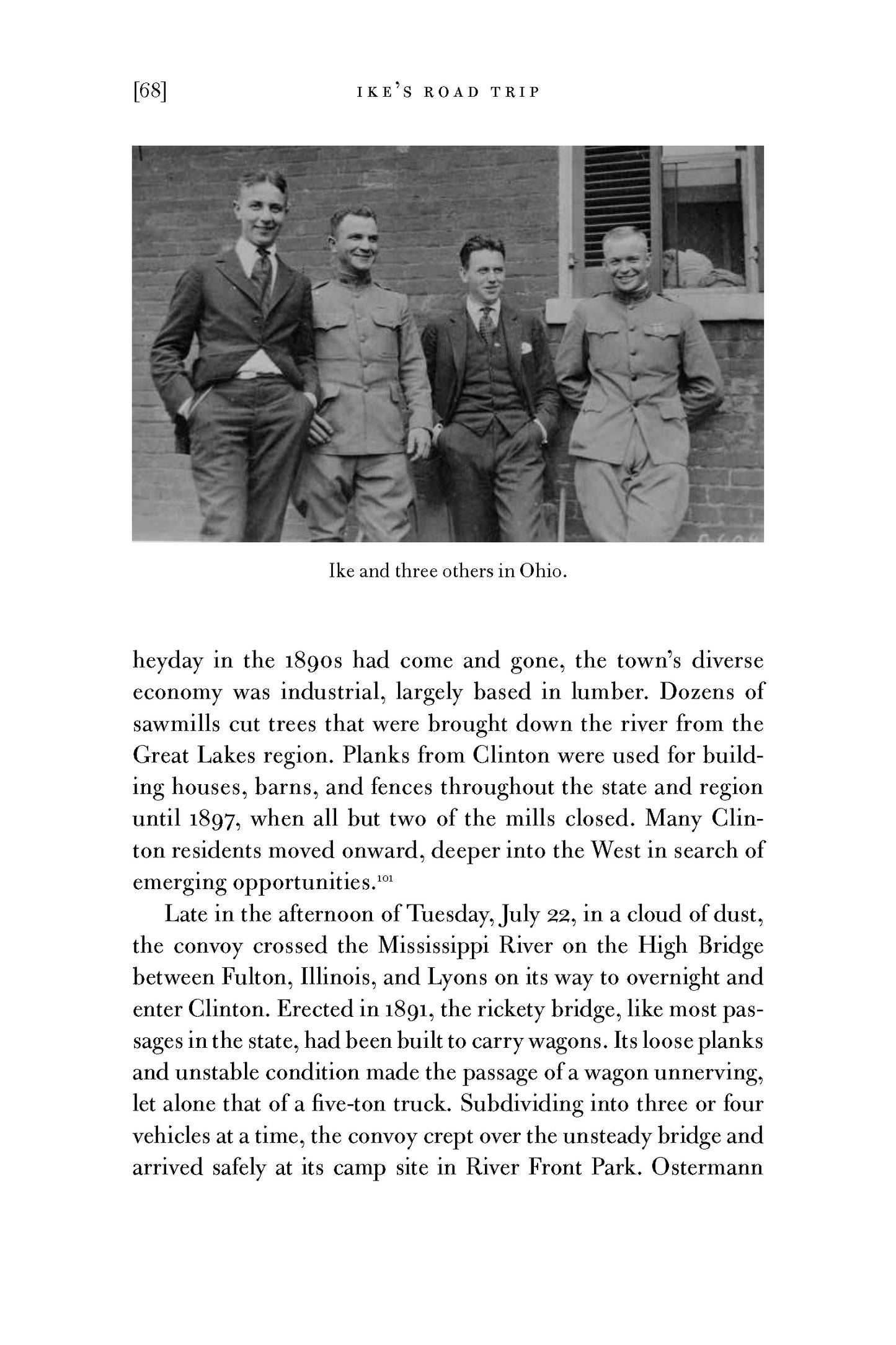
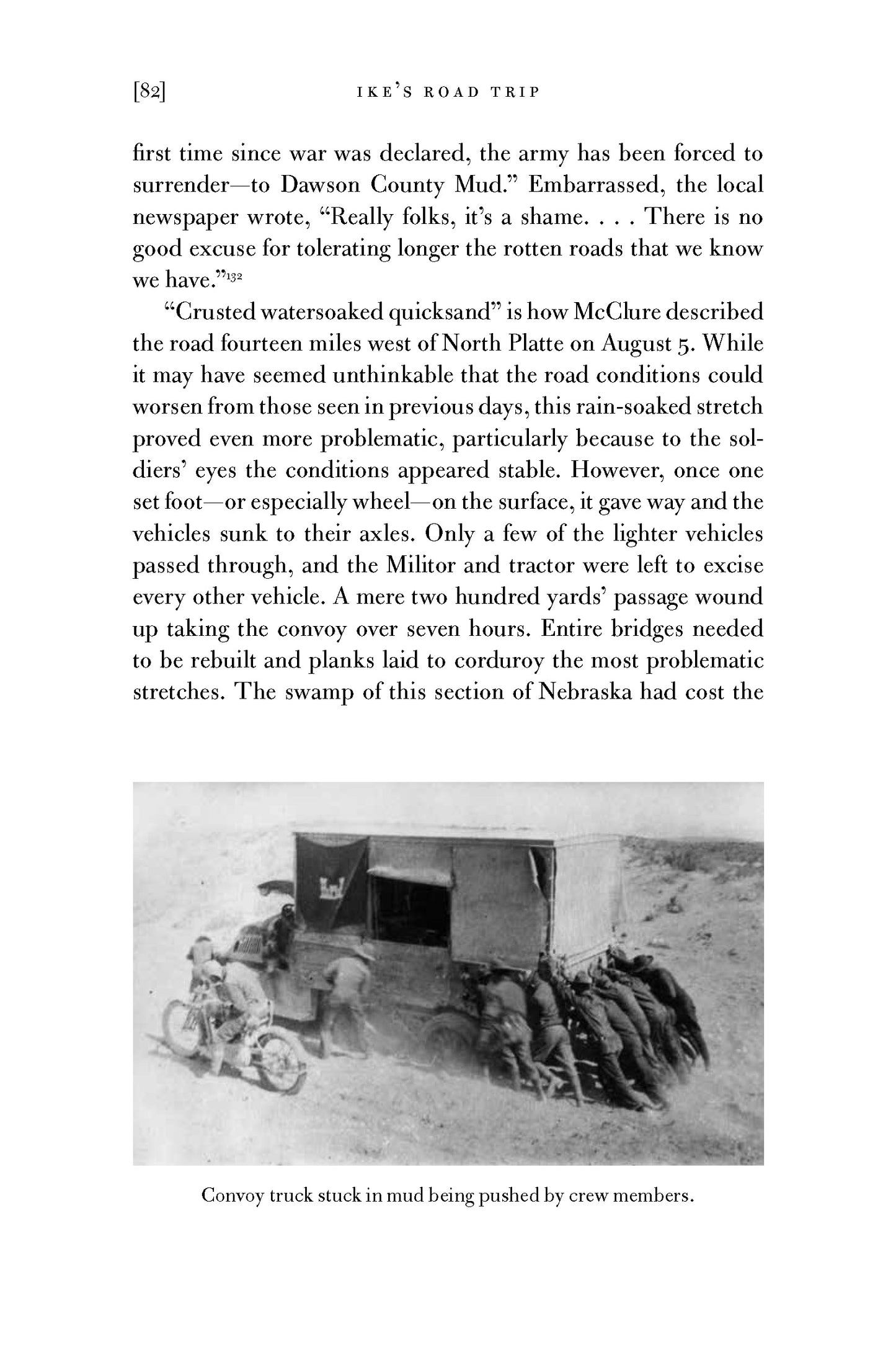
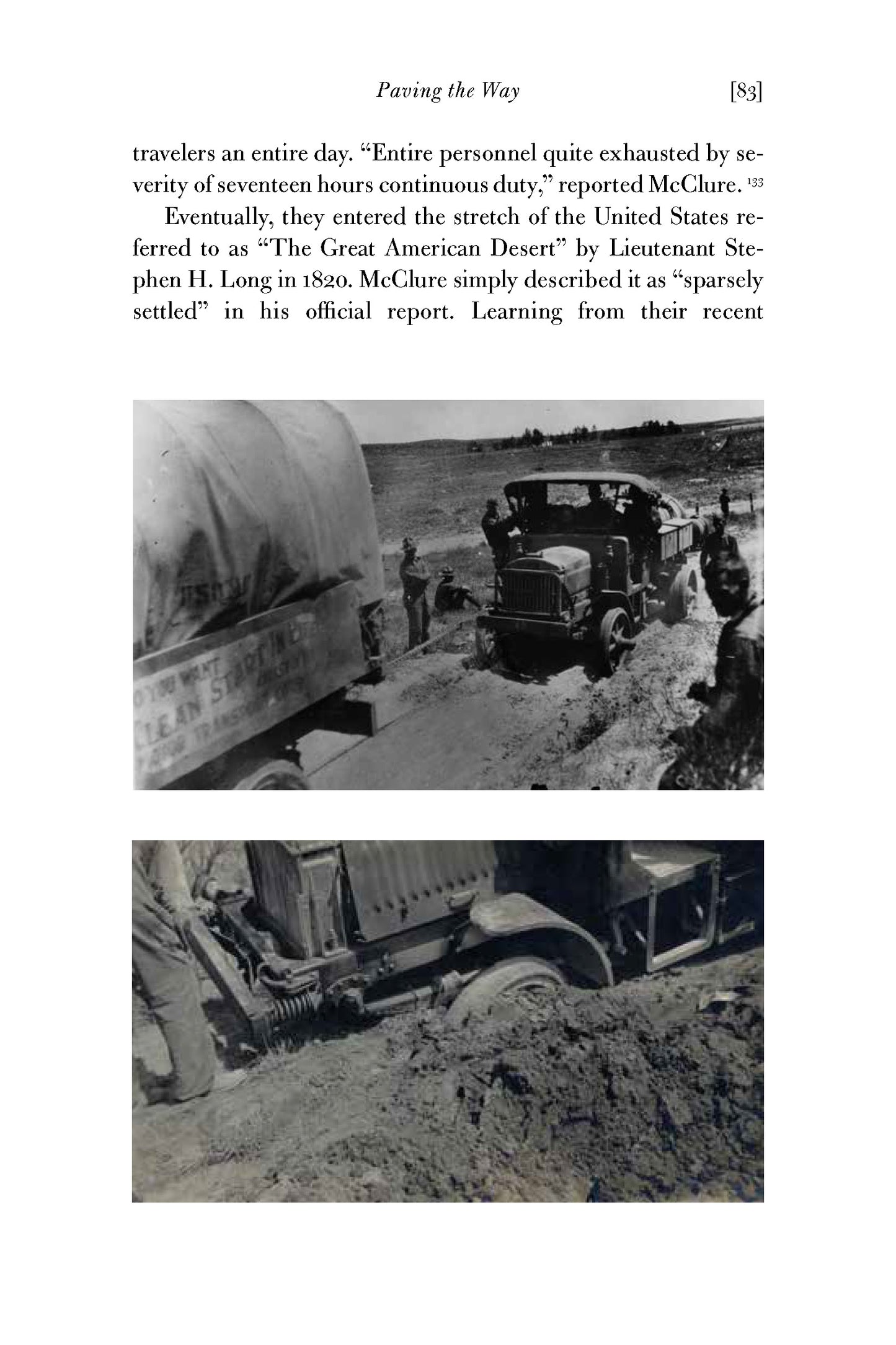
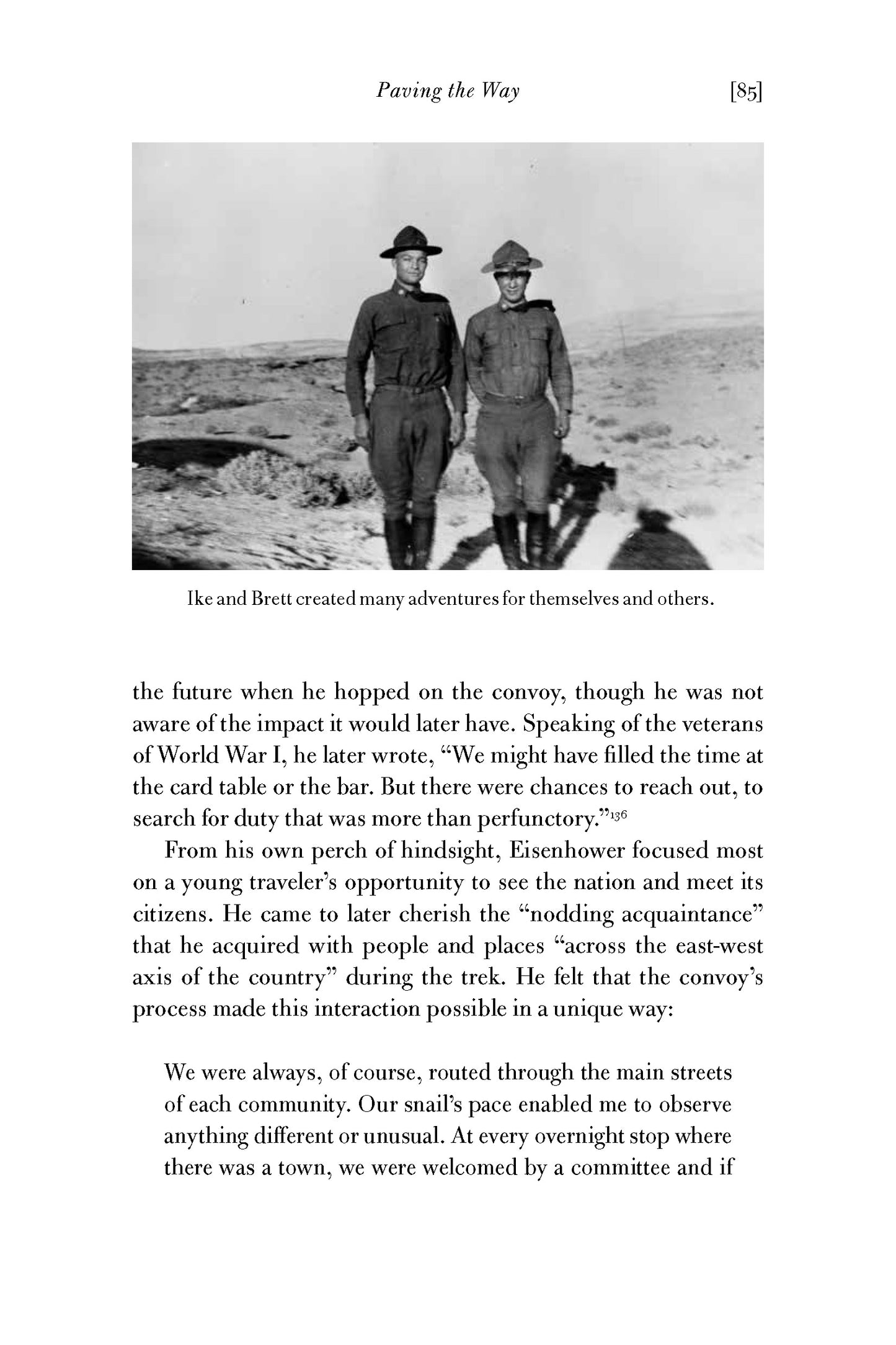
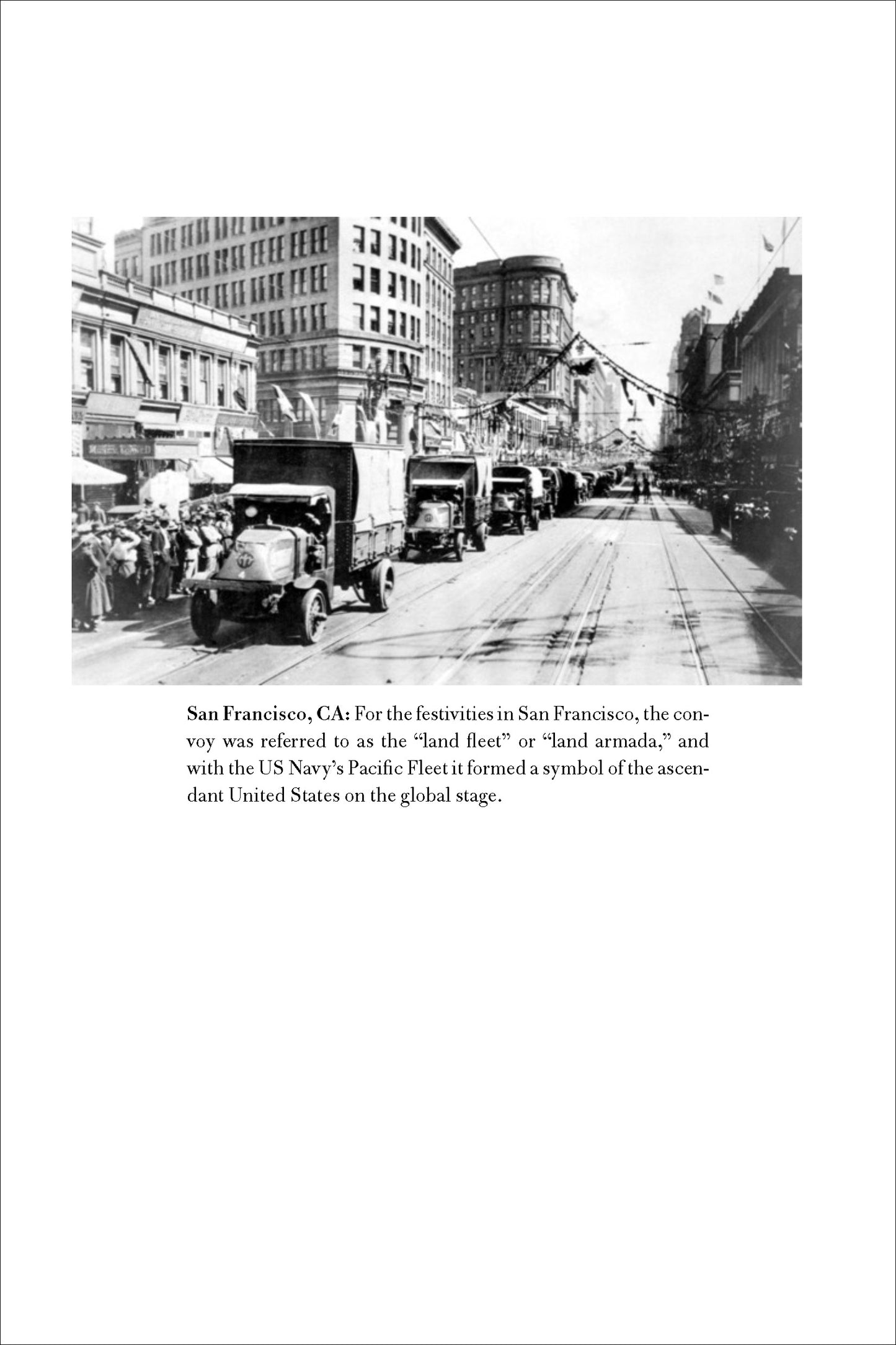
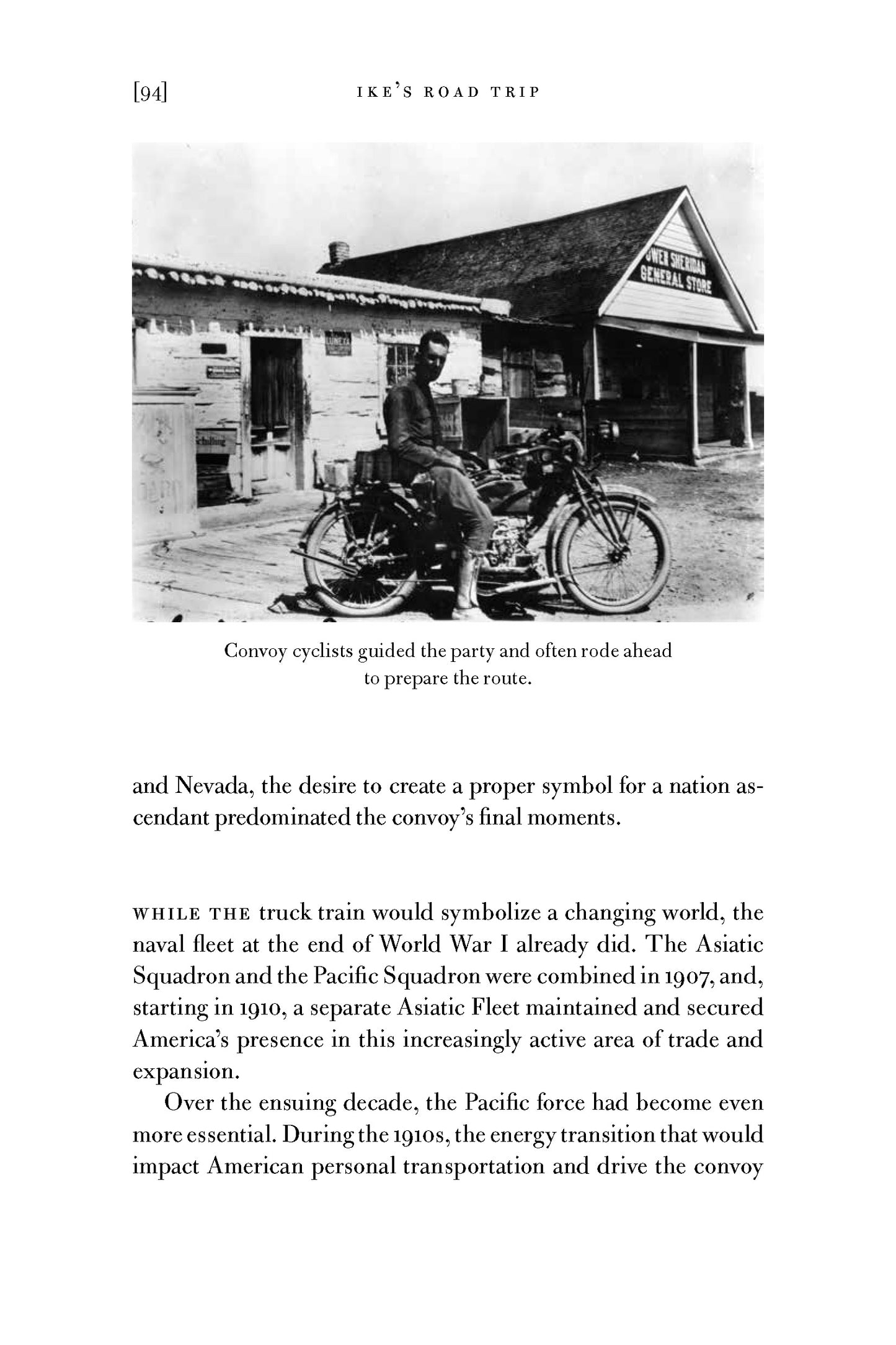
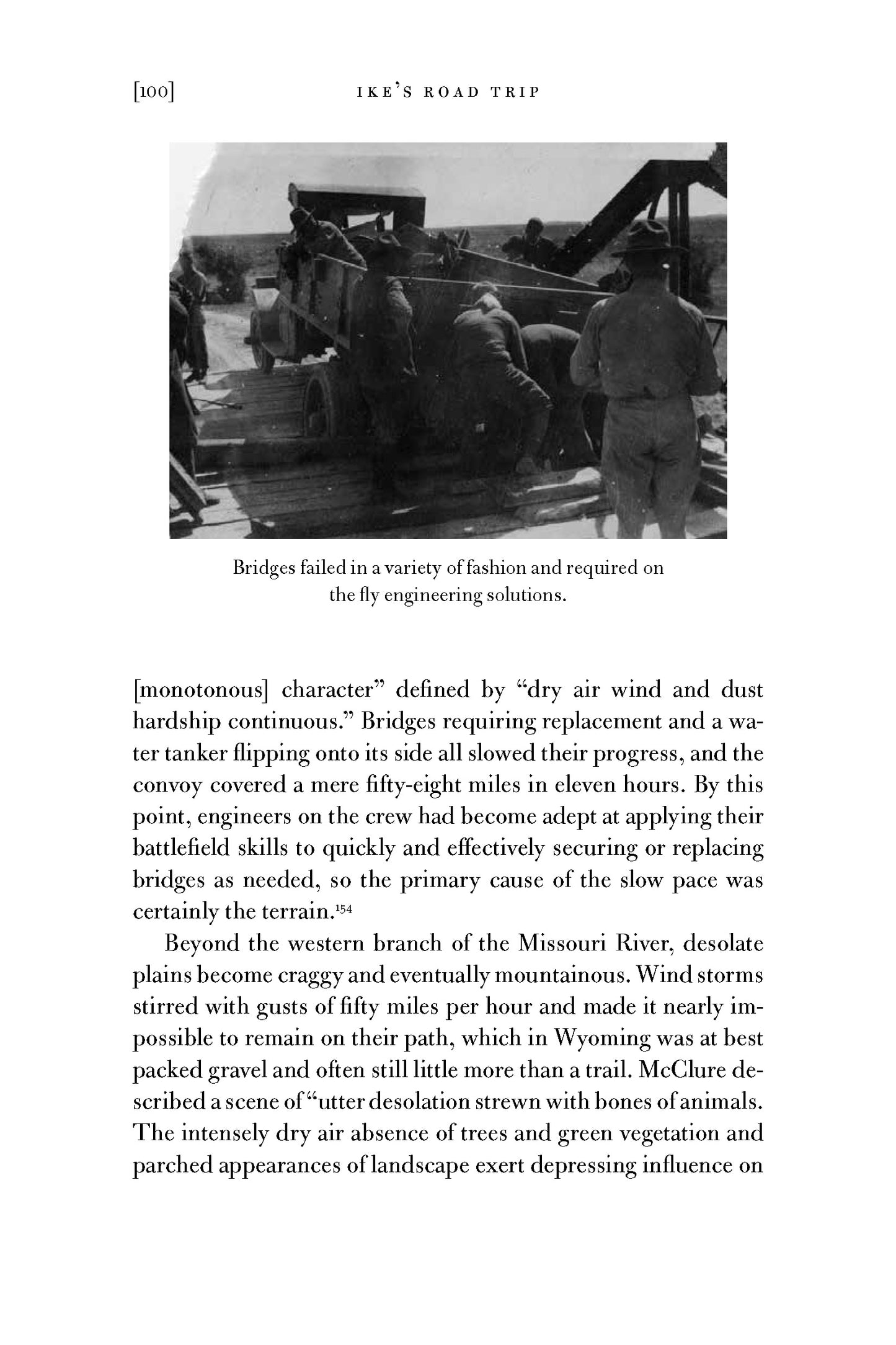
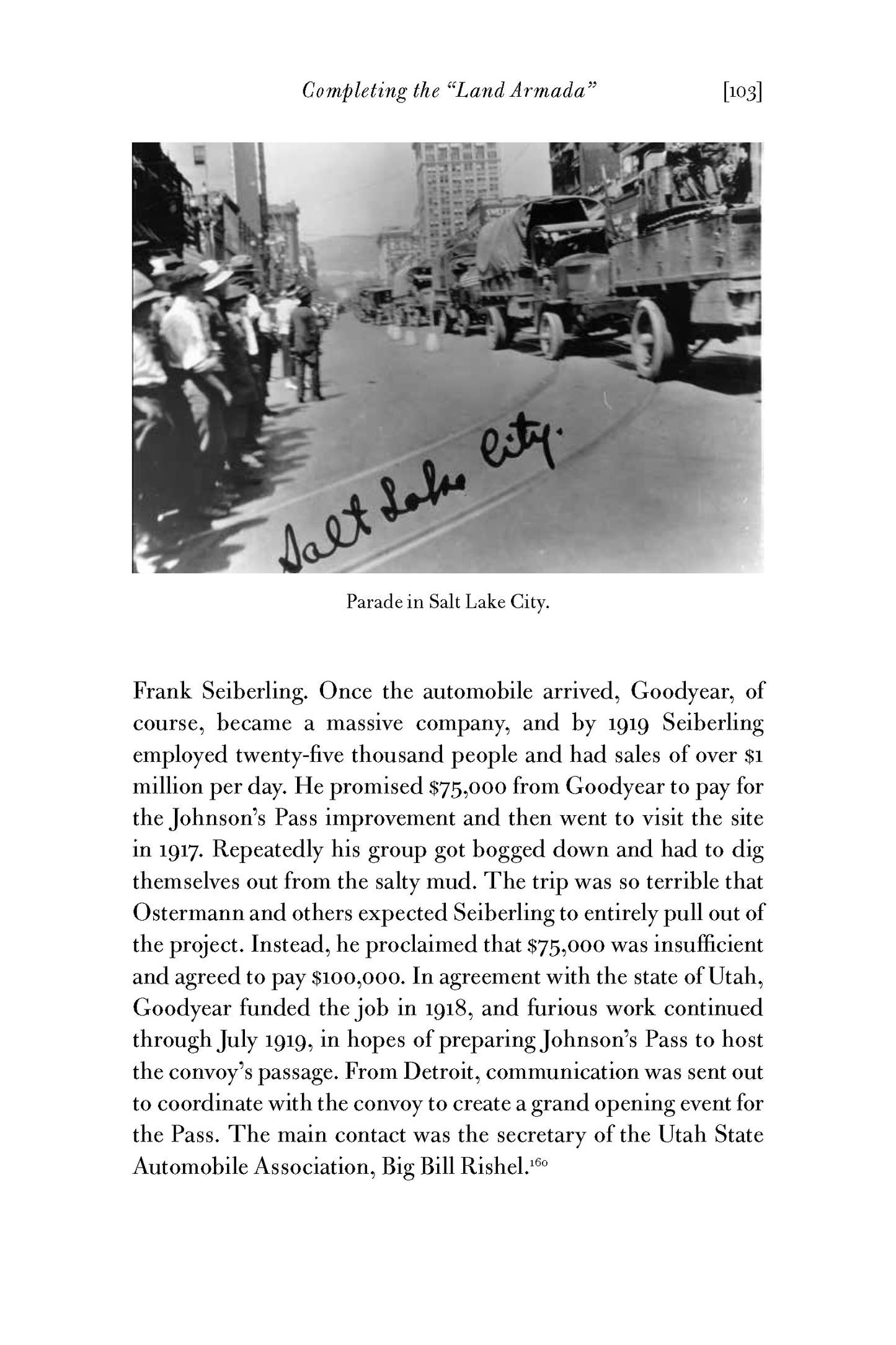
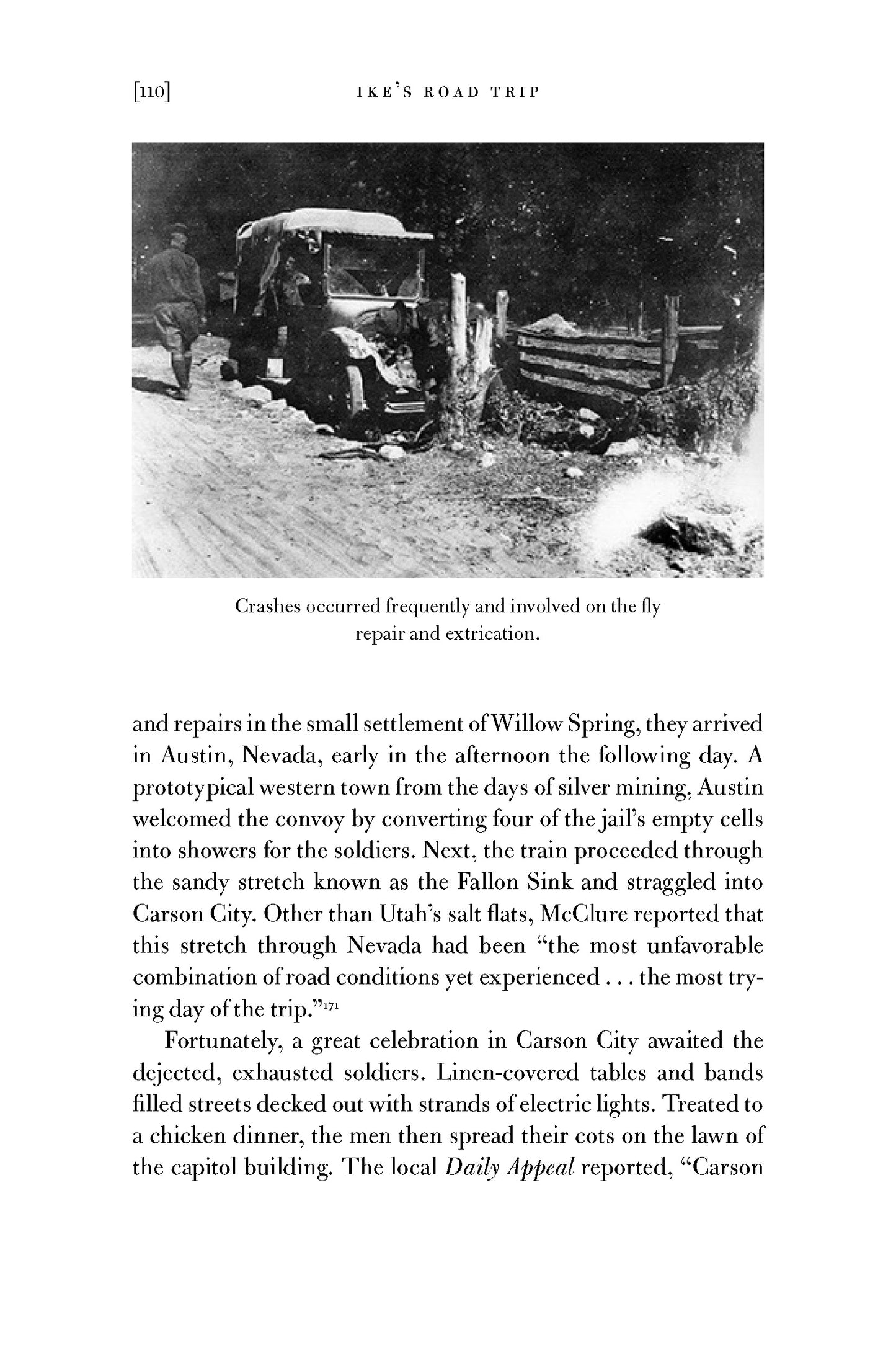
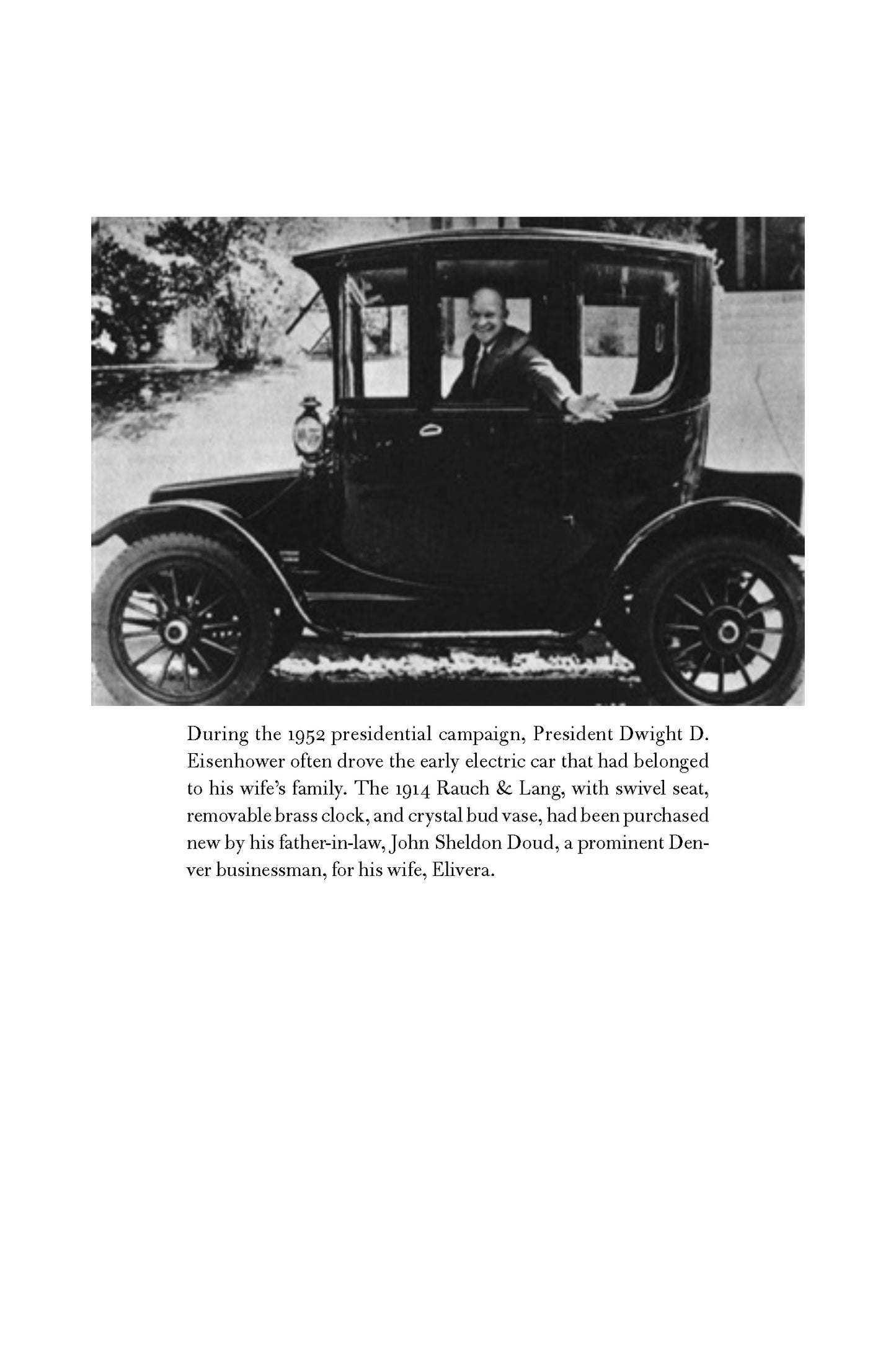
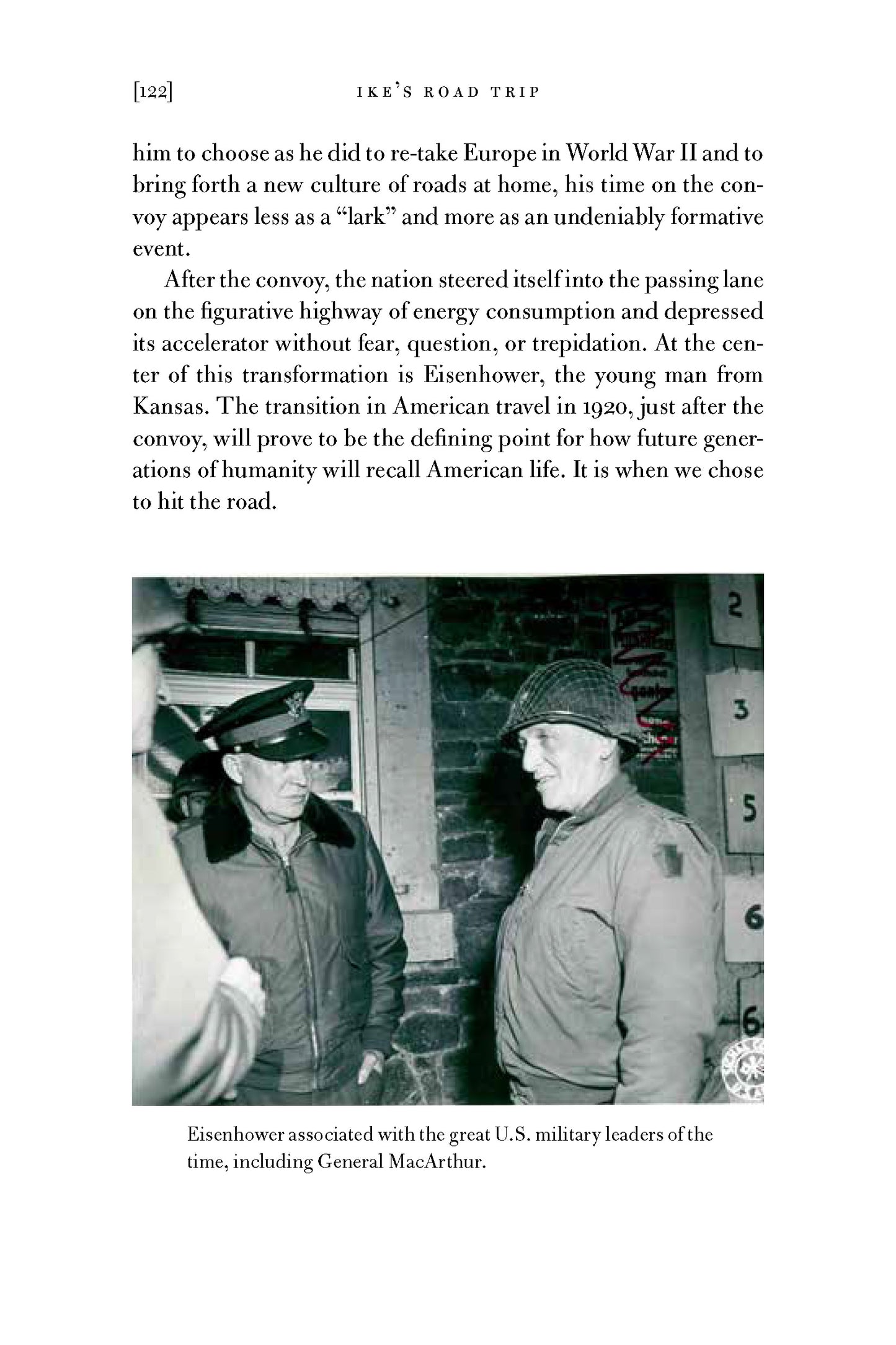
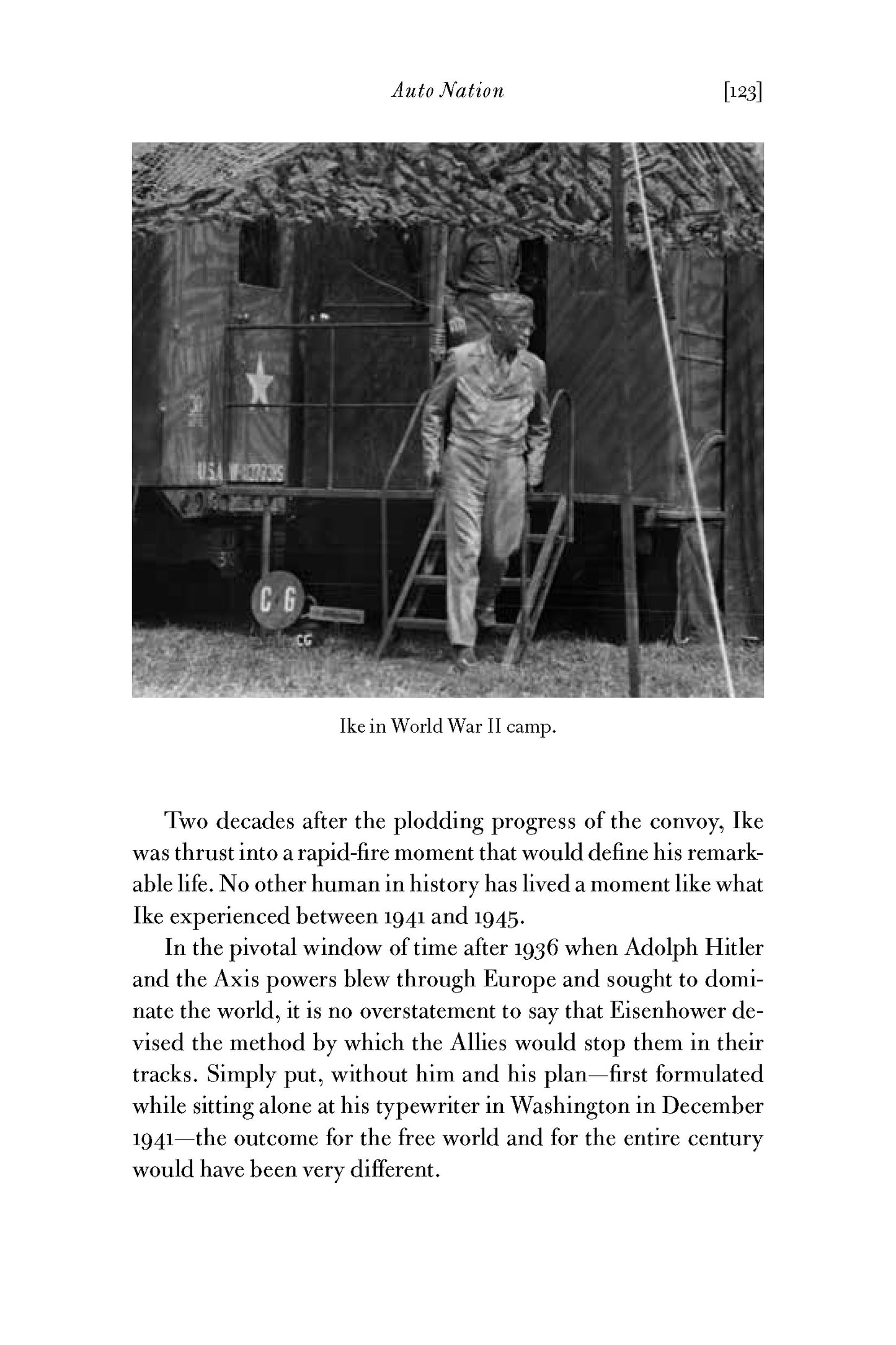
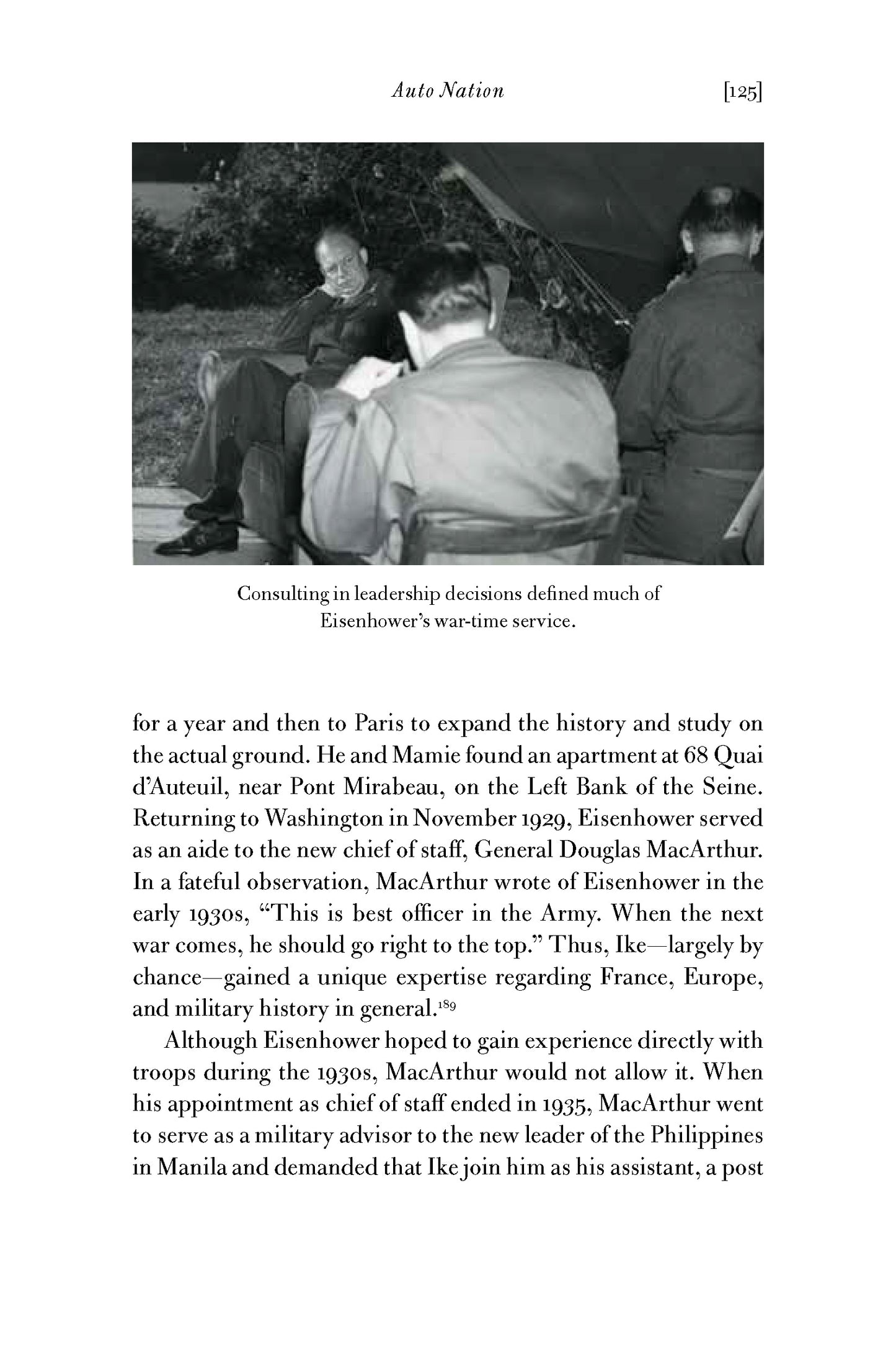
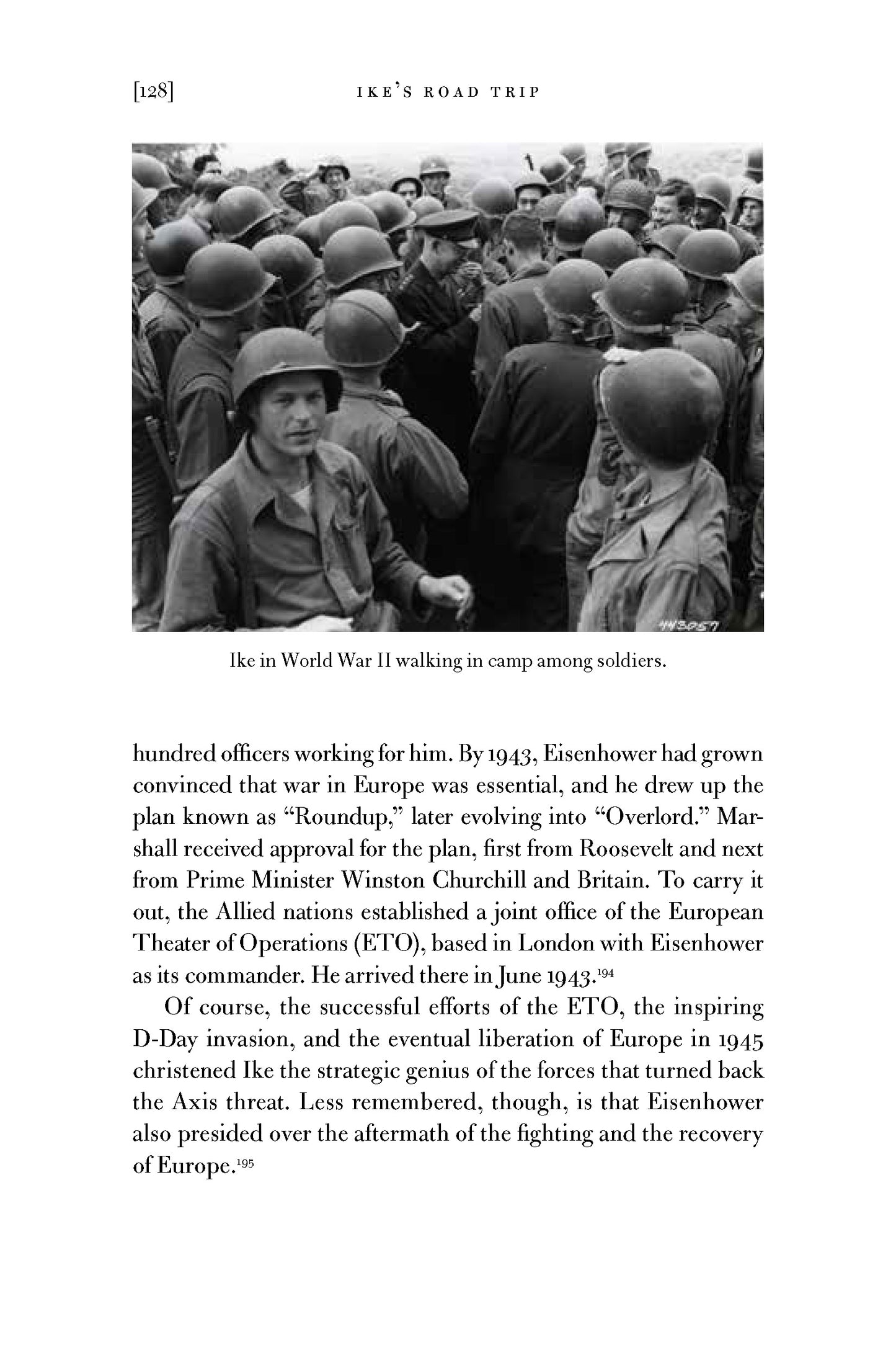
All roads begin somewhere and today’s U. S. highway system began with an unforgettable, exploratory, cross-country ride, led by a 28-year-old Army lieutenant colonel, Dwight Eisenhower. This is the story of his coast-to-coast journey and how the dream of connecting America with roads began.
Before he led the liberation of Europe, before he became our nation’s 34th President, Dwight D. Eisenhower’s made a road trip in 1919 from Washington D.C. to California. The expedition proved to be a crucial chapter in the history of American culture as it laid the groundwork to make automobile travel the fastest and easiest way to move around the country, also setting in motion the nation’s future love affair with cheap crude. The 1919 Transcontinental Motor Convoy of eighty-one trucks and other military vehicles traveled more than 3,000 precarious miles along the most famous road of the day, the Lincoln Highway, which ran between New York City and San Francisco. World War I had illustrated the importance of being able to move large amounts of troops and equipment quickly over long distances, and Eisenhower’s mission on the road trip was to evaluate whether the country’s emerging network of paved roadways could handle such a task. It was an experience Eisenhower would never forget.
“The old convoy had started me thinking about good, two-lane highways,” he later wrote. “This was one of the things that I felt deeply about, and I made a personal and absolute decision to see that the nation would benefit by it.” Decades later, as president, he drew on that experience to push through the Interstate Highway Act of 1956.
Ike’s Road Trip adds an important chapter to the story of the midwestern president who is often seen as “America’s grandfather.” Eisenhower will also be seen as a modern visionary during a pivotal moment: his persistent trust in cheap petroleum proved to be a blueprint for modern America as he helped facilitate the most significant energy transition of the twentieth century. Today, we are experiencing perhaps the most important energy transition since Eisenhower’s day—from petroleum to renewables—and that change will require minds as equally visionary as his.
Praise for Ike’s Road Trip
“The bulk of this story details the trials and tribulations of the convoy, and it’s as engaging as any tale of westward expansion.” —Wall Street Journal
“A great ride in every sense. This is history at its most engaging.” —Ted Widmer, author of Lincoln on the Verge
“An epic story—and a reminder that we desperately need twenty-first century visionaries who will do as much to put us off the hydrocarbon road.”—Bill McKibben, author The Flag, the Cross, and the Station Wagon
“Although the energy transition began before the Interstate Highway System was initiated, Ike understood from the transcontinental convoy of 1919 and during the fight for the German Autobahn during WWII that no modern society could exist without the capacity to link itself into one cohesive country.” —Susan Eisenhower, author of How Ike Led
“Deploying a talent shared with Eisenhower, Black recognizes the links between the small details and the larger picture—none larger than the history of energy transitions.” —J.R. McNeill, author of The Webs of Humankind
“Fun and enlightening.” —Adam Rome, author of The Bulldozer in the Countryside
“An accessible and insightful book whose issues resonate today more than ever.” —Thomas Zeller, author of Consuming Landscapes
“An eye-opener. Ike’s Road Trip enriches Eisenhower historiography and encourages readers to ponder energy choices they will face.” —Michael J. Birkner, editor of Democracy’s Shield
“Brian C. Black’s wonderful telling of Ike’s Road Trip introduces readers to a little-known story about an American icon of the twentieth century.” —Edward T. Linenthal, author of Sacred Ground
“An insightful and enjoyable take on America’s long love affair with cars and roads.” —Raechel Lutz, co-editor of American Energy Cinema
“Brian C. Black takes his readers on a thrilling ride through the life of Dwight D. Eisenhower, along the greatest road-building endeavor of all time.” —Tyler Priest, author of The Offshore Imperative
“A timely meditation on a monumental energy transition whose consequences remain very much with us today.” —Paul S. Sutter, author of Driven Wild
“A cautionary tale about the origins of our oil and auto dependency and their twenty-first century consequences.”—Gabrielle Esperdy, author of American Autopia























